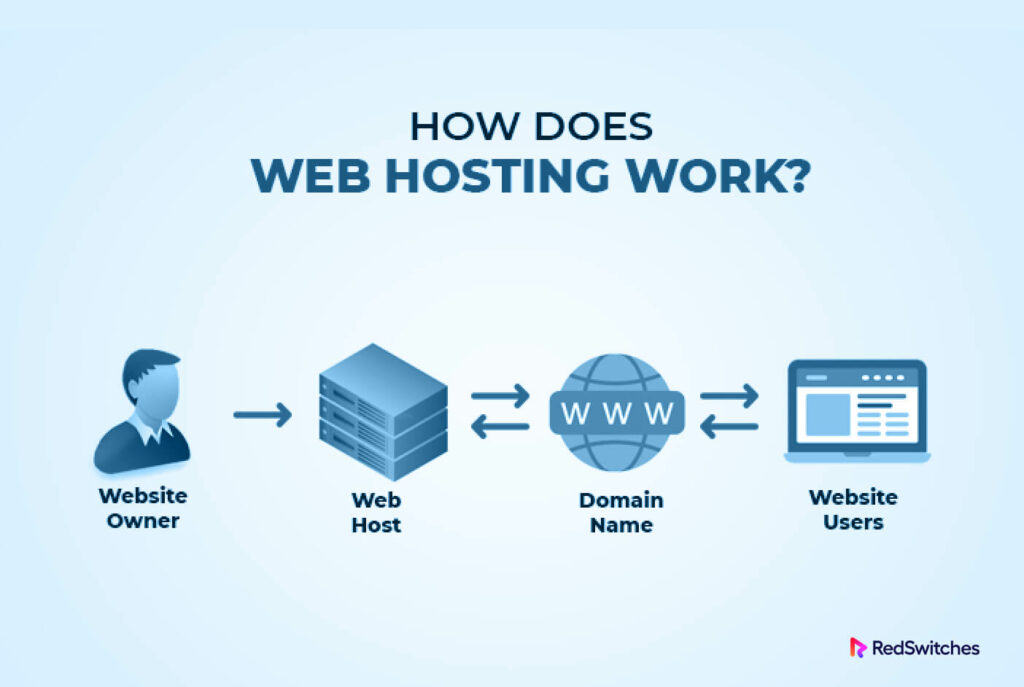In the realm of web hosting, choosing between shared hosting and a Virtual Private Server (VPS) is a decision that can significantly impact the performance, security, and scalability of your website. Both options offer distinct advantages and drawbacks, and understanding the differences between them is crucial for making an informed decision that aligns with your specific requirements and objectives. In this article, we’ll explore the pros and cons of shared hosting and VPS to help you determine which hosting solution is best suited for your needs.
Shared Hosting:
Shared hosting is a popular and cost-effective option for individuals, small businesses, and websites with moderate traffic and resource requirements. With shared hosting, multiple websites are hosted on the same server, sharing its resources, including CPU, memory, and storage. Here are some of the pros and cons of shared hosting:
Pros:
-
Affordability: Shared hosting plans are typically the most budget-friendly option available, making them ideal for individuals and small businesses with limited budgets. Since the cost of server maintenance and resources is shared among multiple users, shared hosting plans are generally more cost-effective than VPS or dedicated hosting solutions.
-
Ease of Use: Shared hosting providers typically offer user-friendly control panels, such as cPanel or Plesk, that simplify website management tasks such as setting up email accounts, managing domains, and installing applications. This makes shared hosting a suitable option for beginners or those with limited technical expertise.
-
Maintenance and Support: With shared hosting, the hosting provider is responsible for server maintenance, security updates, and technical support. This relieves website owners of the burden of managing server infrastructure, allowing them to focus on building and maintaining their websites.
-
Scalability: Shared hosting plans often include scalable resources, allowing users to upgrade their plans as their websites grow in traffic and resource requirements. This flexibility makes shared hosting a viable option for startups and small businesses looking to scale their online presence gradually.
Cons:
-
Resource Limitations: Since resources are shared among multiple users on the same server, individual websites may experience performance issues during periods of high traffic or resource utilization. This can lead to slower loading times, downtime, and reduced reliability for websites hosted on shared servers.
-
Limited Customization: Shared hosting environments are inherently restrictive in terms of customization and configuration options. Users may be limited in their ability to install custom software, modify server settings, or access advanced features, depending on the policies and restrictions imposed by the hosting provider.
-
Security Concerns: The shared nature of the hosting environment poses security risks, as a vulnerability or breach affecting one website could potentially impact others hosted on the same server. While hosting providers implement security measures to mitigate these risks, shared hosting is generally considered less secure than VPS or dedicated hosting solutions.
-
Performance Variability: Since resources are shared among multiple users, the performance of websites hosted on shared servers can be unpredictable and inconsistent. Websites may experience fluctuations in performance depending on the activity and resource usage of neighboring sites.
Virtual Private Server (VPS):
A Virtual Private Server (VPS) offers a more advanced and flexible hosting solution compared to shared hosting. With a VPS, users have dedicated resources allocated to their virtual server instance, providing greater control, performance, and security. Here are the pros and cons of VPS hosting:
Pros:
-
Dedicated Resources: Unlike shared hosting, where resources are shared among multiple users, VPS hosting provides dedicated resources, including CPU, RAM, and storage, allocated exclusively to the virtual server instance. This ensures consistent performance and eliminates the risk of resource contention with other users.
-
Customization and Control: VPS hosting offers greater control and flexibility over server configuration, allowing users to install custom software, configure server settings, and implement security measures according to their specific requirements. This level of customization makes VPS hosting suitable for advanced users and businesses with specialized needs.
-
Scalability: VPS hosting is highly scalable, allowing users to easily upgrade or downgrade their resources as needed to accommodate changes in website traffic and resource demands. This scalability makes VPS hosting a flexible solution for businesses experiencing growth or fluctuations in demand.
-
Enhanced Security: Since each VPS operates in isolation from other virtual server instances on the same physical server, the risk of security breaches or vulnerabilities affecting one VPS impacting others is significantly reduced. VPS hosting provides a higher level of security compared to shared hosting, making it suitable for websites handling sensitive data or requiring enhanced security measures.
Cons:
-
Cost: VPS hosting tends to be more expensive than shared hosting, as users are paying for dedicated resources and greater control over their server environment. While VPS hosting offers excellent value for businesses requiring advanced features and performance, it may not be the most cost-effective option for individuals or small businesses with limited budgets.
-
Technical Complexity: Managing a VPS requires a certain level of technical expertise and proficiency, as users are responsible for server administration, software updates, security patches, and troubleshooting. While many hosting providers offer managed VPS solutions with optional support services, users should be prepared to handle basic server maintenance tasks independently.
-
Resource Management: While VPS hosting provides dedicated resources, users must manage resource allocation effectively to avoid overutilization or underutilization of resources. Improper resource management can lead to performance issues, downtime, or additional costs associated with resource upgrades.
-
Potential Performance Limitations: While VPS hosting offers dedicated resources, performance may still be impacted by factors such as hardware limitations, network congestion, and server load. Users should carefully evaluate the performance capabilities of their chosen VPS hosting plan to ensure it meets their requirements.
Conclusion:
In conclusion, the choice between shared hosting and VPS hosting depends on various factors, including budget, technical expertise, performance requirements, and scalability needs. Shared hosting offers an affordable and user-friendly solution for individuals and small businesses with modest resource requirements, while VPS hosting provides greater control, customization, and performance for users with more demanding hosting needs. By carefully weighing the pros and cons of each option and assessing your specific requirements, you can select the hosting solution that best aligns with your goals and objectives for your website or online presence.





